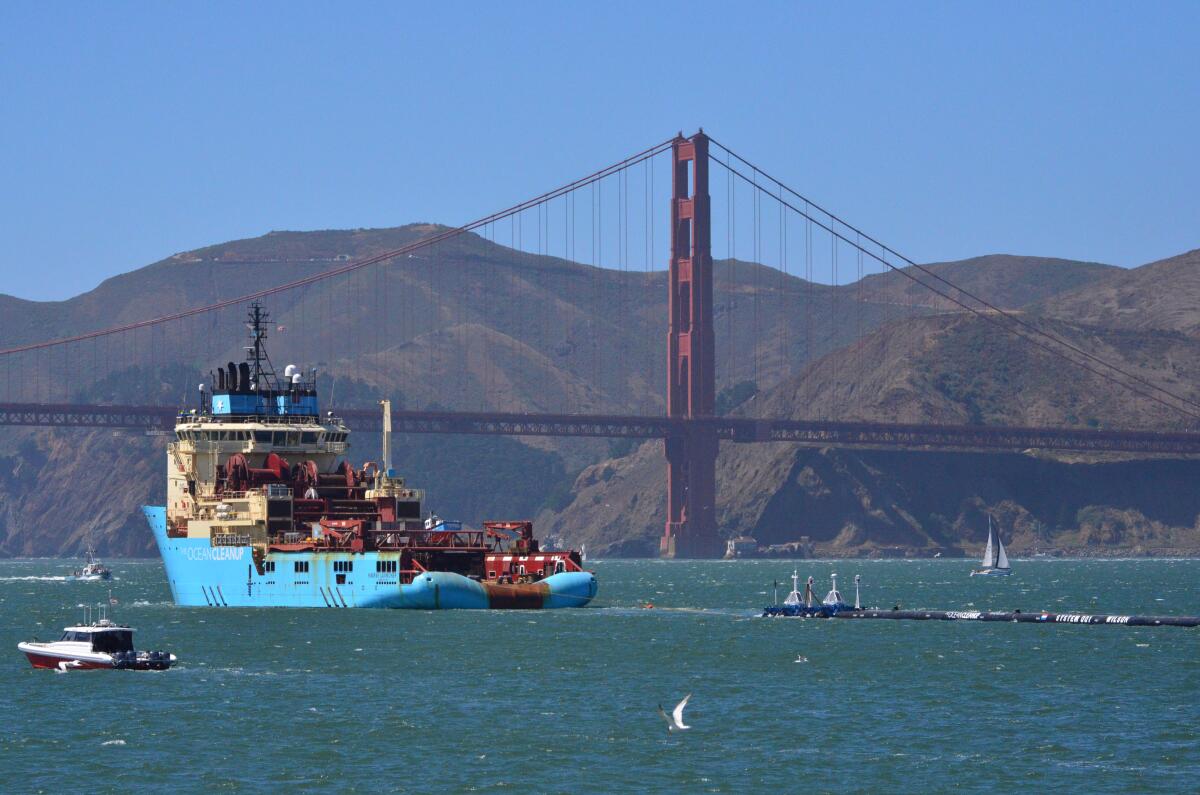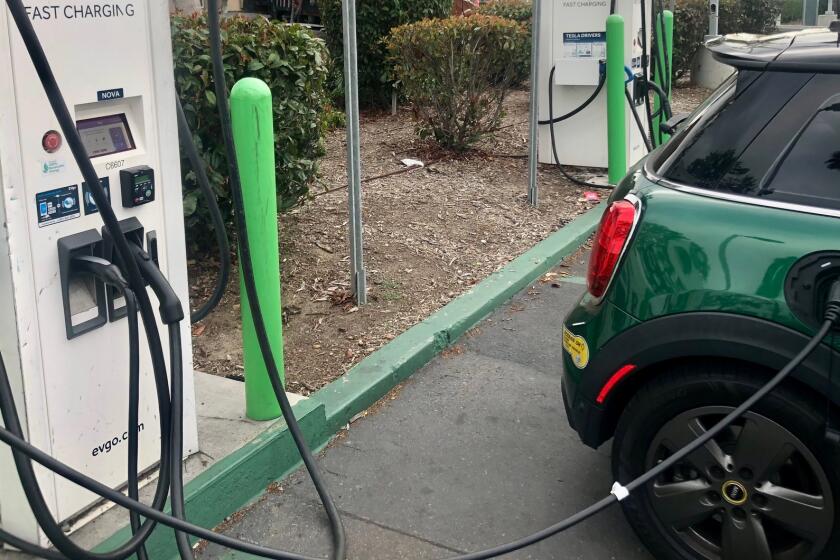Letters to the Editor: Cleaning up ocean garbage isn’t enough. We must end our plastic addiction

To the editor: To combat plastic pollution in our oceans, we need to cut back on plastic production, not try to capture the endless stream of it. A recent article in The Times on an effort to eliminate the so-called Great Pacific Garbage Patch failed to address this pollution’s root cause.
Plastic is everywhere. It’s in our soil, water, air, food and even our bodies. If we continue with business as usual, plastic production is expected to triple in the next three decades.
But if your bathtub is overflowing, don’t start with a mop. Turn off the tap. The solution to this crisis is clear: Reduce plastic production and use, and embrace refillable and reusable systems.
California is leading by example, with its Legislature having recently passed a ban on thick single-use plastic film bags from grocery store check-outs. Gov. Gavin Newsom should swiftly sign this bill into law to protect our oceans and communities from more plastic pollution.
Katie Matthews, Washington
The writer is chief scientist at Oceana, a nonprofit focused on ocean conservation.
..
To the editor: Hooray for the Netherlands-based group The Ocean Cleanup. I am sure its needs only to ask the petroleum industry and its stepchild, the plastics industry, to donate the $7.5 billion it needs to clean up the rest of the Great Pacific Garbage Patch.
Or maybe the petroleum and plastic industries are too busy ridding the world of microplastics, forever chemicals and thwarting global warming to bother with their trash in the ocean, right?
Denise Dobbs, Shermans Oaks
..
To the editor: Thanks for informing us of the effort to clean up the Great Pacific Garbage Patch. However, 10 years is a long time to work and wait as more plastic floats in.
I suggest that we ask the U.S. Navy for help. It has the skills, resources and the money to make this happen. It could shepherd our fleets of docked and bankrupt fishing boats and pay their owners for their help and expertise in pulling things from the sea.
Our Navy could use these voyages as training exercises for new sailors. This would be a welcomed use of our bloated military budget.
The fish would thank us. In our new circular economy, the plastic can be re-figured into deck chairs on the new solar-powered ships sailing the clean and splendid seas.
Sarah Starr, Los Angeles






